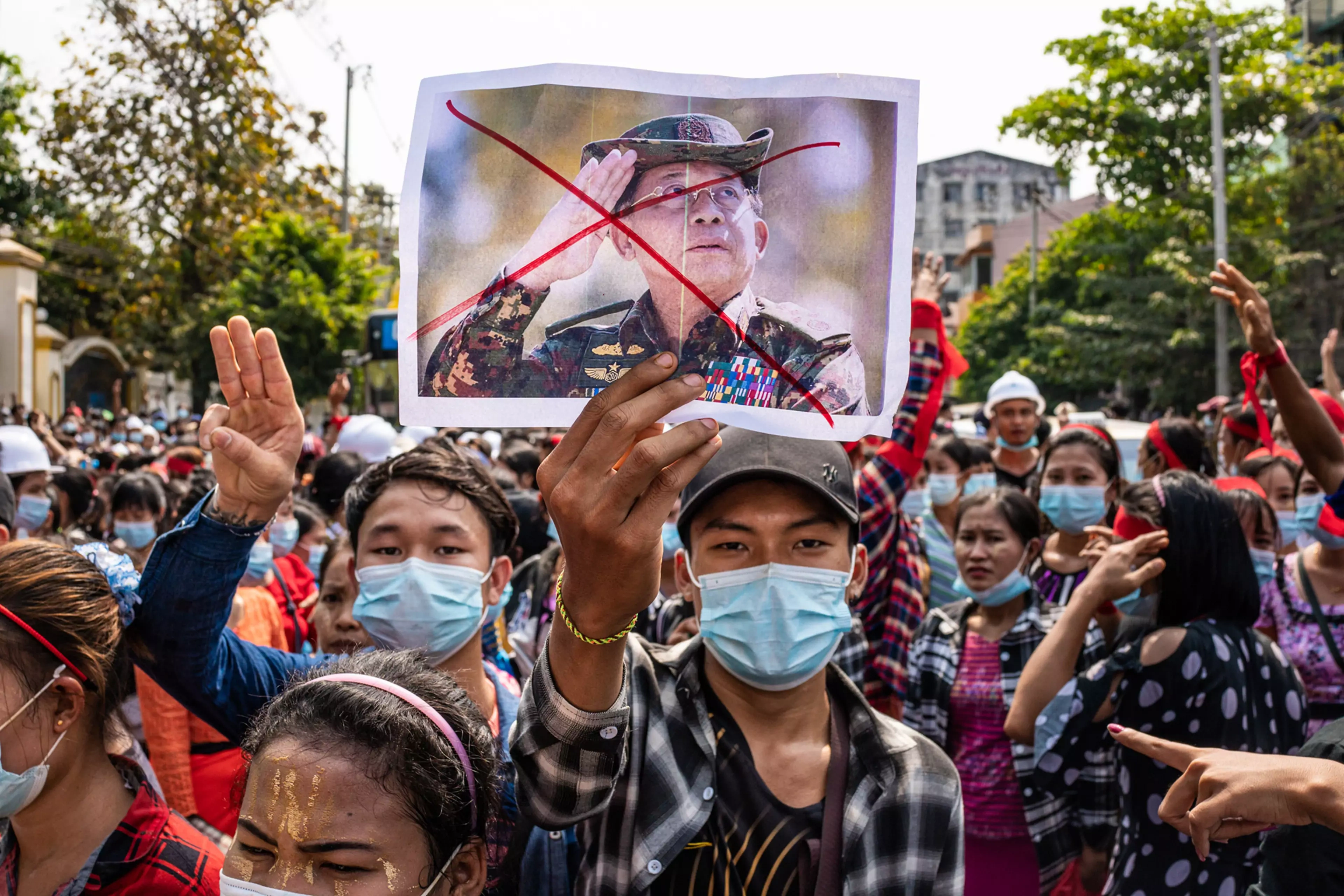
by Nava J Thakuria 16 February 2022
The people of Myanmar (also known as Burma/ Brahmadesh) observed a silent protest on 1 February, marking two years of the military coup and subsequent public resistance movement against the military junta in the southeast Asian nation, which is the eastern neighbour of India. The international media (if not the government-controlled newspaper and news channels) reflected the deserted urban and rural areas of Myanmar, highlighting the continued opposition to the Min Aung Hlaing military brigade.
Commemorating the second anniversary of the people’s resistance against the illegal coup, cities, and towns nationwide participated in the silent strike. Many roads and streets were deserted, including in Yangon, Mandalay, Monywa, Dawei, and others, despite being threatened by the junta. The shops and street vendors in Yangon were ordered by the junta-controlled municipalities to open on 1 February. Still, they did not obey it even though their licenses may be revoked.
poverty-stricken country of a 55 million population. They face armed opposition from the People’s Defence Forces, Ethnic Revolutionary Organizations, and others in various localities.
personnel continues targeting the protesting villagers with airstrikes.
Since the coup, 2,940 civilians have been killed by the Burmese authorities and 17,572 arrested, among whom 13,763 are still behind bars. Over 150 media personnel were also detained by the military council, and more than 25 are still inside various jails in the
country. At least three journalists died of military atrocities in separate incidents. Nobel laureate Aung San Suu Kyi, who leads the National League for Democracy, has been imprisoned for over 30 years by the military-controlled courts following motivated allegations raised by the dictators. The militaries are determined to bar the democracy icon from contesting the polls.
While a large section of people in Thailand, the Philippines, Korea, Japan, etc., organized protest demonstrations on 1 February, showing solidarity with the resilient people of Myanmar. Many western nations have imposed heavy sanctions against the junta, but its immediate neighbours remain undecisive as their respective governments have geopolitical and economic interests in Myanmar.
Recently the foreign ministers of south-east Asia, while meeting in Jakarta, urged the Myanmar military rulers to reduce violence and allow unhindered delivery of humanitarian aid to pave the way for a national dialogue to end the country’s worsening crisis. The meeting, under the initiatives of the Association of Southeast Asian Nations, even avoided inviting the Myanmar foreign minister, even though it’s an ASEAN member, as the military regime failed to fulfill many promises made earlier.
Many north-eastern militants are still taking shelter in Myanmar-China border areas, including the Ulfa (Independent) chief Paresh Barua, who has recently shown interest in peace talks with the government. New Delhi has to deal with the Burmese junta carefully as it cannot support them openly but also cannot ignore the generals while looking
for a sustainable solution to the decades-long insurgency in the region.
